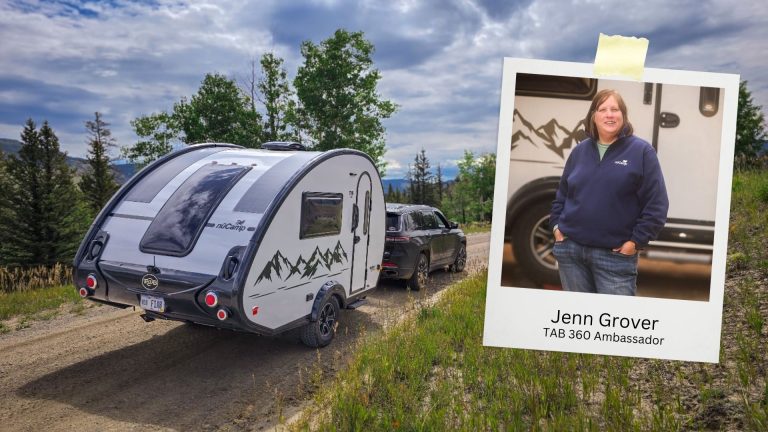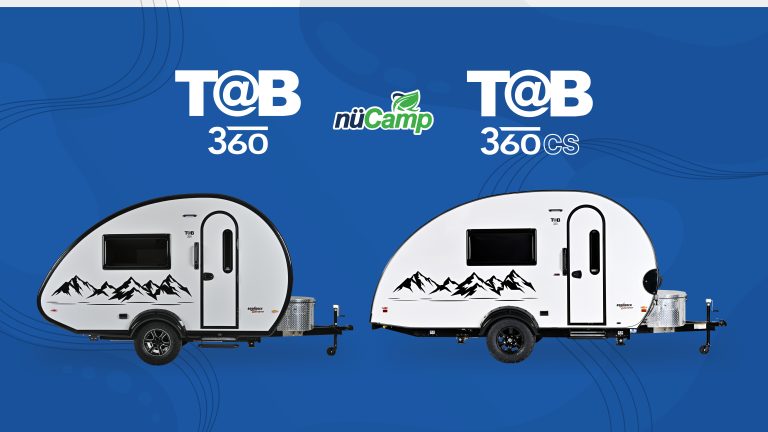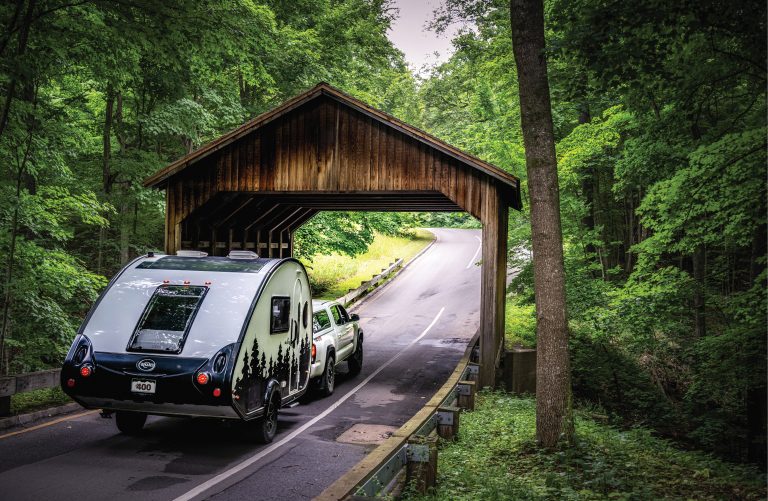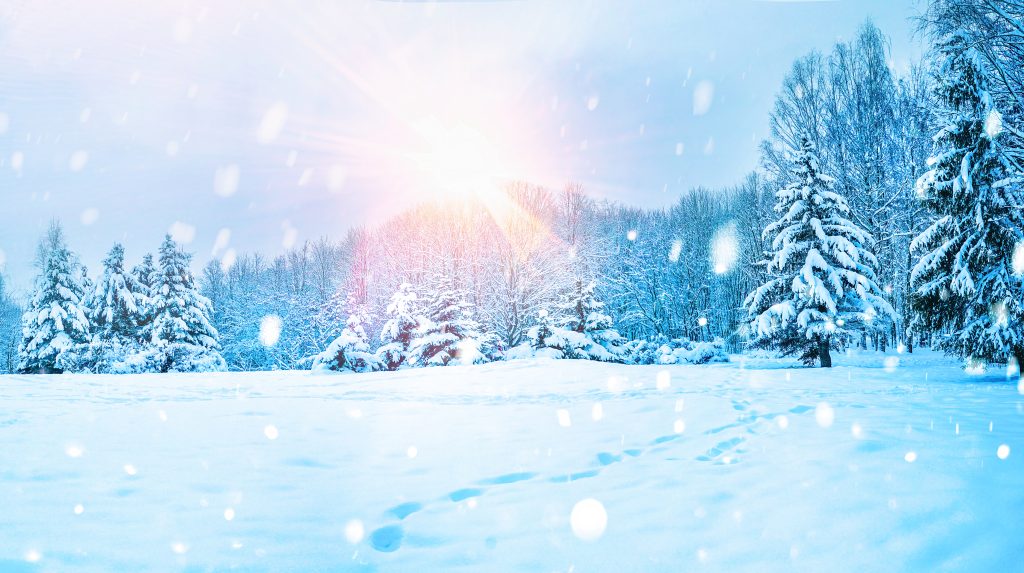You’re the adventurous type. After all, that’s why you bought your RV in the first place. And now you’re ready to kick it up a notch by trying out cold-weather camping.
Camping in an RV offers a wonderful way to experience the beauty of nature without sacrificing the comforts at home. However, as winter’s chill sets in, staying warm can become a priority to ensure a comfortable and enjoyable camping experience. In this blog post, we will share some essential tips and tricks to help you keep warm in cold climates while camping in your RV.
Escapees RV Club highlights some of the benefits of winter RVing:
- Campgrounds and RV parks are less crowded and might even offer an off-season lower rate.
- Issues with seasonal allergies and summer insects won’t be a problem if you’re in colder areas where they are less prevalent.
- Opportunities for fun winter activities (sledding, skating, and snowman-building) will bring out the child in you!
But, before you head out into the frosty weather, make sure you and your rig are ready for what’s ahead. Cold-weather camping requires a certain degree of advanced preparation. It’s important to understand how all the components in your rig react when the temperature drops and Ol’ Man Winter blows his freezing breath across the landscape.
Here are some useful tips and recommendations from experts and other campers to keep you safe while enjoying a new camping experience.
Check your tow vehicle
It’s critical that your tow vehicle is in good shape before you head out. That means checking fluid levels (don’t forget windshield washer liquid!), tires, wipers, battery, and lights.
Then add these winter must-haves: a portable battery charger (here’s how to use it from JD Power), lock de-icer (Firestone says hand sanitizer will work in a pinch!), a small snow shovel, and a bag of sand for traction.
Two other must-haves, says RV Life, are a cordless heat gun and recovery tracks: rubber or plastic traction mats that give your tires a better grip on slippery ground. Camping with Gus also recommends several large trash bags for wet gear, while Reserve America says to have blocks of wood to place underneath stabilizing jacks to keep them from freezing to paved or concrete pads.
Add tire (snow) chains to your list if you’re traveling in an area where they are required. (See this handy guide from Tire Chain for measuring the size chain you’ll need.) TireChainsRUs has a list of tire chain laws, but always confirm the regulations on your state’s (or the states you’re traveling in) official site. Just be sure to remove them as soon as possible to avoid damage.
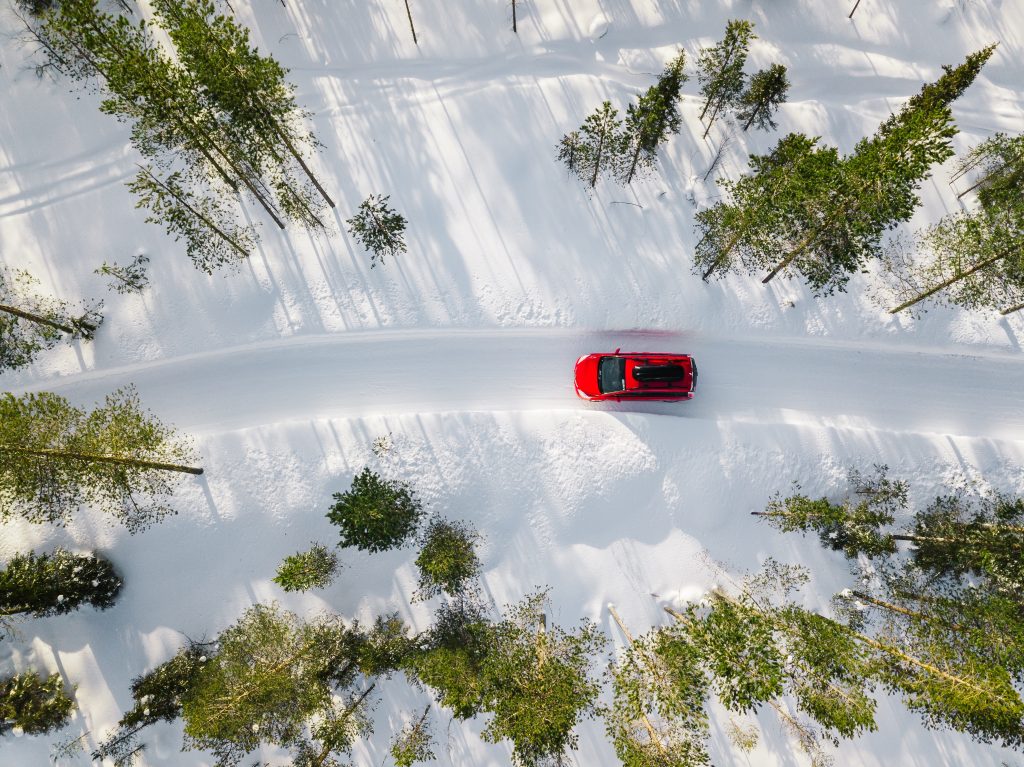
Check your camper
Inspect your heating system, performing any maintenance as recommended by your manual. Equally important, says Reserve America, is to prepare your refrigerator since the refrigerant can turn into a gel when outside temps drop below 20 degrees F. Check your fridge manual for recommendations if below-freezing temps are expected.
Obviously, you’ll be checking propane levels since the last thing you want to happen is insufficient propane when you need it most. Trekkn recommends having an extra propane tank onboard just in case, while Poppin’ Smoke notes that some campgrounds and propane companies may provide large external propane tanks. Adding a portable electric space heater will also reduce the draw on propane for heating.
Also, understand how your rig’s batteries will perform in cold weather. According to Volts Energies, lithium iron phosphate batteries (also known as LiFePO4 or LFP batteries) can handle cold weather (below 32 degrees F) with minimal power loss, compared to lead-acid batteries that operate at 70–80% of their rated capacity at the same temperature. Also, while lead-acid batteries typically weaken in cold weather when used, LFP warm during use, reducing their resistance while raising their voltage, says Volts.
Having a battery heat pad can help reduce the effect of cold weather on your battery, but check the battery manufacturer’s recommendations first. Or use a heated battery such as Battle Born’s deep cycle LiFePO4 heated batteries. All 2024 units come standard with lithium batteries and include a battery heat switch.
Keep in mind that if your towable isn’t a four-season camper, full winterization is recommended.
Finally, keep in mind that your camper will most likely experience humidity issues, so nip that problem in the bud with a dehumidifier or moisture-absorbing product such as Damp Rid, says Nomads in Nature. Periodically, open a window to bring in some fresh air, and always run a ventilation fan when cooking or after showering.
Check your travel plans
Stay on top of weather changes, such as snow, ice storms, and high-wind warnings, so you’ll know what the forecast is for the road ahead as well as at your destination. Download the free Red Cross Emergency: Severe Weather App available in the Apple Store or Google Play. Two other weather apps are RV LIFE Trip Wizard (a web-based app) and Weather Hi-Def Radar (available in the Apple Store or Google Play).
Also, download apps that will alert you to road conditions ahead. Some to consider are Traffic Spotter and Waze. More helpful apps can be found in our post, Camping Apps for Navigation and Weather Information.
RV Life also recommends a battery-operated or solar-powered weather radio for localized NOAA information in case the cell service is unreliable. NOAA Weather Radio All Hazards (NWR) is a nationwide network of radio stations broadcasting continuous weather information directly from the nearest National Weather Service office, 24 hours a day, seven days a week.
While you may be used to traveling without a plan during warm weather, as the season changes, you may want to be a little more strategic, especially if you’re thinking of stopping at a campground. Nerd Wallet points out that many of them have limited availability or may even be closed during cold weather, so calling ahead is always a wise move.
Even if they say they are open, some campgrounds don’t have all the amenities this time of year as they do in the summer. Some may shut off water hookups while others may close their restroom facilities. Don’t rely on the website information. Ask the campground directly what will be open and operational.
A few more tips
Planning to bring winter sports gear? Tips for packing those must-have items can be found in this Xscapers post.
Cold weather can lead to hypothermia and frostbite, painful and potentially life-threatening conditions. Know the signs and what to do by reading How to Identify and Treat Hypothermia and Frostbite on the Red Cross website. And don’t forget to download the Red Cross First Aid app, available in the Apple Store or Google Play.
And be sure to read our other post, How to keep your camper warm in cold temps, for more tips.
Recent Articles

